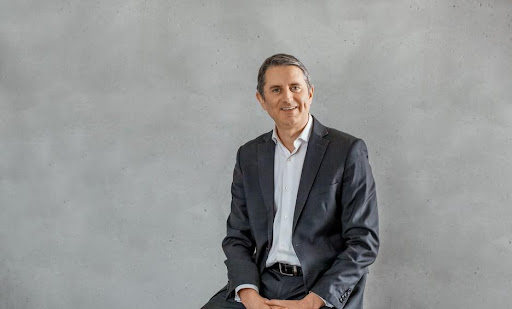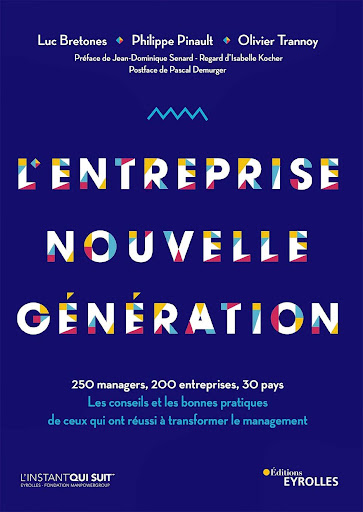
Luc Bretones explains how companies should go about resolving conflict in a productive way that ultimately benefits everyone. The founder of the NextGen Enterprise Summit sees collective decisions as the benefit of conflict.
Many things. In my 25 years of management experience in companies of all sizes, I have observed time and again that conflict can be positive.
Conflict can be toxic, especially when the rules are not clear or when they are clear but are not followed. Conflicts exist in any organization, and that is natural. It becomes dangerous when it is toxic and permanent.
Conflicts arise when everyone sticks to their positions. In traditional hierarchical companies, where only management and managers make decisions, conflict is inevitable. In companies that value team hierarchy, it is possible to convert conflicts into collective decisions.
"Conflicts become toxic when the rules are not clear or when they are clear but not followed."
Luc Bretones Tweet
Generational conflicts are only one of many factors. The main reason lies in a problem at the level of company management. In my book “The Next Generation Enterprise”, I conducted a total of 250 interviews in 30 countries, in companies with very low employee turnover. These companies do not necessarily pay better salaries than equivalent companies in the same sector and are not particularly well known or liked because of their brand.
Because they benefit from a truly modern management style: authority is decentralized, which favors the autonomy and responsibility of employees. The different roles are clearly defined. Transparency and trust are essential in the management of a company. Management is based on trust rather than on bonuses and sanctions, whether positive or negative.
"The younger generation also prizes clear values, such as honesty, a sense of responsibility and creativity."
Luc Bretones Tweet
It is all a matter of authenticity in leadership. It is also about cultivating clear values, such as honesty, accountability and creativity. The worst case scenario for the younger generation is that management is insincere and transparent, or even lies to its staff. This will lead to employees leaving the company and having a bad opinion of it. Companies that claim to be perfect discredit themselves. It is better for them to acknowledge their weaknesses and communicate their goals for improvement.
Conflicts and differences of opinion are very valuable for companies. An organization of like-minded clones cannot be creative or differentiated. It is therefore extremely valuable to have different ideas, even if this can cause conflict. Personally, I am absolutely delighted when the people I work with or supervise express very different and even opposing views. It’s a sign of diversity, intelligence and creativity.
Above all, there is a need for leadership – especially in decision-making or in managing meetings – that allows for different opinions to be expressed. This ensures that collective solutions can be found, which will not satisfy everyone completely, but which will be a compromise acceptable to all.
No, it’s actually very good. Many agile organizations practice a decision-making process called “participatory”. This is based on collective decision making by consent, because everyone can speak up and express their voice regarding the decision.
Anyone in the organization can submit a proposal within their role and responsibilities. Other team members can optimize or refine the proposal. When a proposal expressed and improved by the community does not jeopardize the organization, it should be able to be implemented. This way, everyone can be part of the decision. When this consent process is applied at all levels of the organization, the company becomes extremely agile.
Decision-making is much faster than in traditional companies, where employees have to ask their boss and, if they are lucky, may be listened to. The latter in turn has to ask his own supervisor, and so on through all levels of the hierarchy, upwards and downwards. This long process is a great waste of time and energy. In agile companies, everyone can participate in the decisions at his or her level through his or her area of expertise and roles and responsibilities. In this way, the company evolves day by day; not by sudden blasts, but by continuous improvement at all levels in the organization.
Indeed, conflict is their driving force: these companies consider diversity as something valuable and as a real lever for innovation. When management is adapted so that everyone can express themselves and the organization finds a common path, collective intelligence works best. This does not mean that everyone is of the same opinion, in fact quite the opposite.
"Personally, I'm thrilled when the people I supervise express different, or even opposing, opinions. It shows diversity and intelligence."
Luc Bretones Tweet
Mutual respect and fairness. Disrespect is simply not an option. In agile companies that cultivate collective intelligence, cordiality and benevolence towards others are paramount. As mentioned, this does not mean that everyone shares the same opinion, but that everyone is accepted with their own peculiarities and that differences are perceived as an asset instead of being seen as a problem.
Kindness, open-mindedness, cordiality as well as the use of rituals based on fair discussion to deal with diverging opinions.
Different tools exist: the consent decision making I mentioned earlier, the governance meeting based on the participatory process, and the feedback tool. The latter allows us to review what we initially thought and what we have learned. We can also allow employees to make mistakes because we prefer a bad decision made quickly to no decision.
It is always better to try something and learn from it than to wait too long. In our innovation economy, the right to make mistakes and psychological safety become key success factors.
Luc Bretones is a partner at Mandarina Group (NextGen, Holaspirit, Talkspirit), organizer of the “NextGen Enterprise Summit” and honorary president of the G9+ Institute, a leading think tank in the digital field. He is co-author of the book “L’entreprise nouvelle génération” (The Next Generation Enterprise), which focuses on company leaders from

French source: https://www.leader-mag.ch/fr/articles/une-organisation-composee-de-clones-ne-saurait-etre-creative
| Cookie | Duration | Description |
|---|---|---|
| cookielawinfo-checkbox-analytics | 11 months | This cookie is set by GDPR Cookie Consent plugin. The cookie is used to store the user consent for the cookies in the category "Analytics". |
| cookielawinfo-checkbox-functional | 11 months | The cookie is set by GDPR cookie consent to record the user consent for the cookies in the category "Functional". |
| cookielawinfo-checkbox-necessary | 11 months | This cookie is set by GDPR Cookie Consent plugin. The cookies is used to store the user consent for the cookies in the category "Necessary". |
| cookielawinfo-checkbox-others | 11 months | This cookie is set by GDPR Cookie Consent plugin. The cookie is used to store the user consent for the cookies in the category "Other. |
| cookielawinfo-checkbox-performance | 11 months | This cookie is set by GDPR Cookie Consent plugin. The cookie is used to store the user consent for the cookies in the category "Performance". |
| viewed_cookie_policy | 11 months | The cookie is set by the GDPR Cookie Consent plugin and is used to store whether or not user has consented to the use of cookies. It does not store any personal data. |